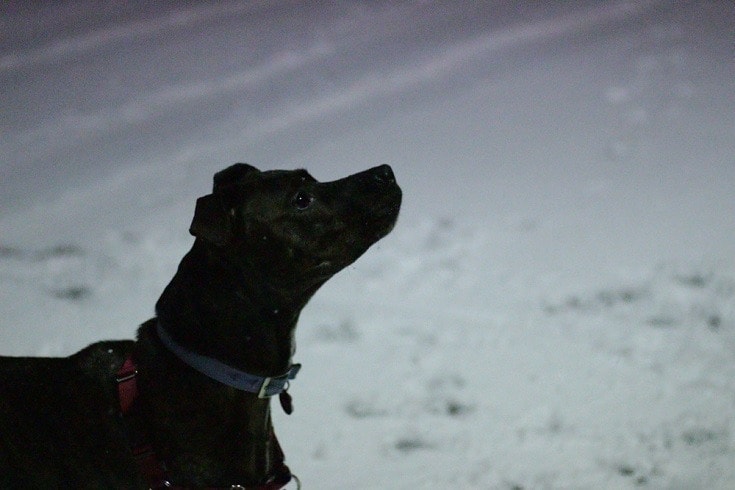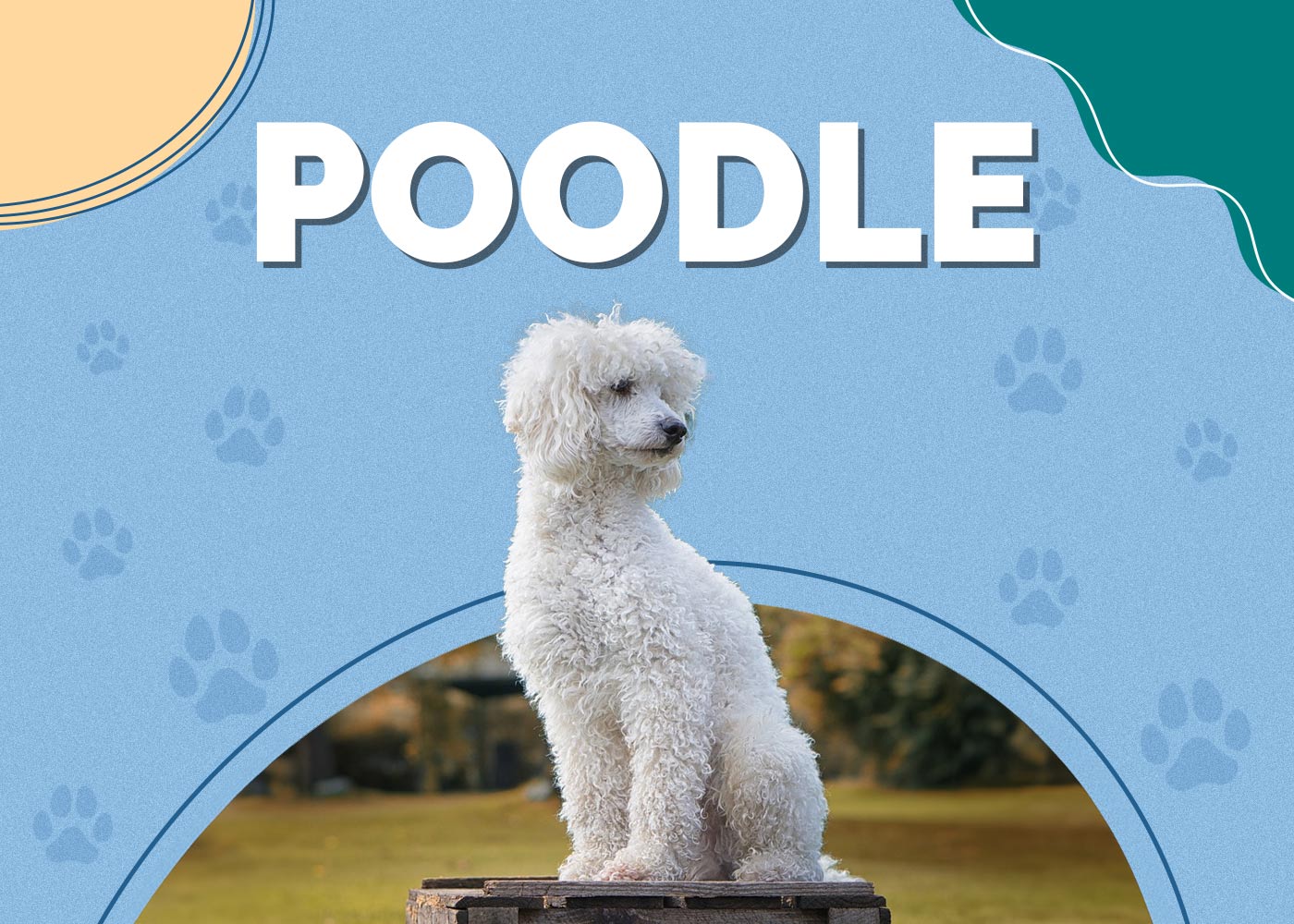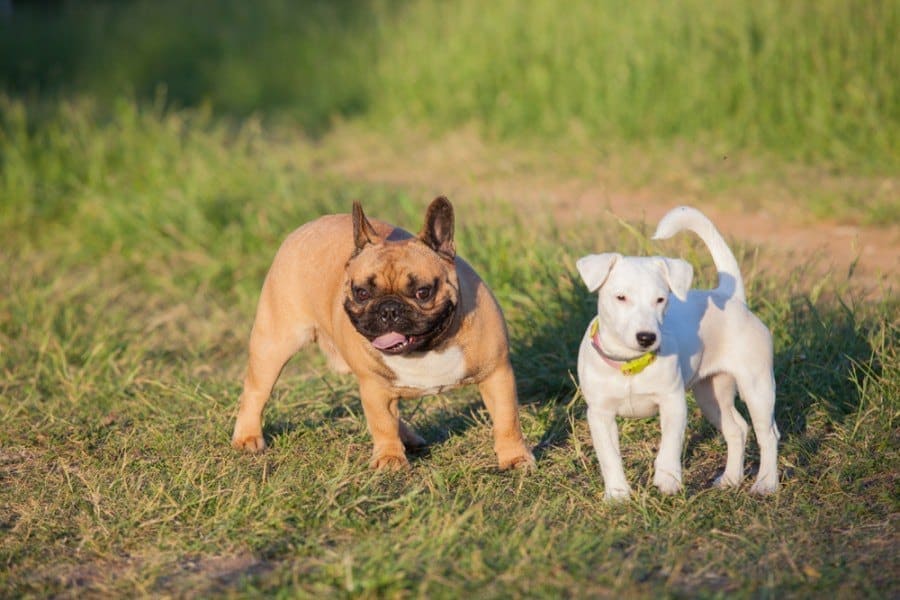Siberian Black Mouth Cur (Siberian Husky & Black Mouth Cur Mix): Info, Pictures, Characteristics & Facts

Updated on
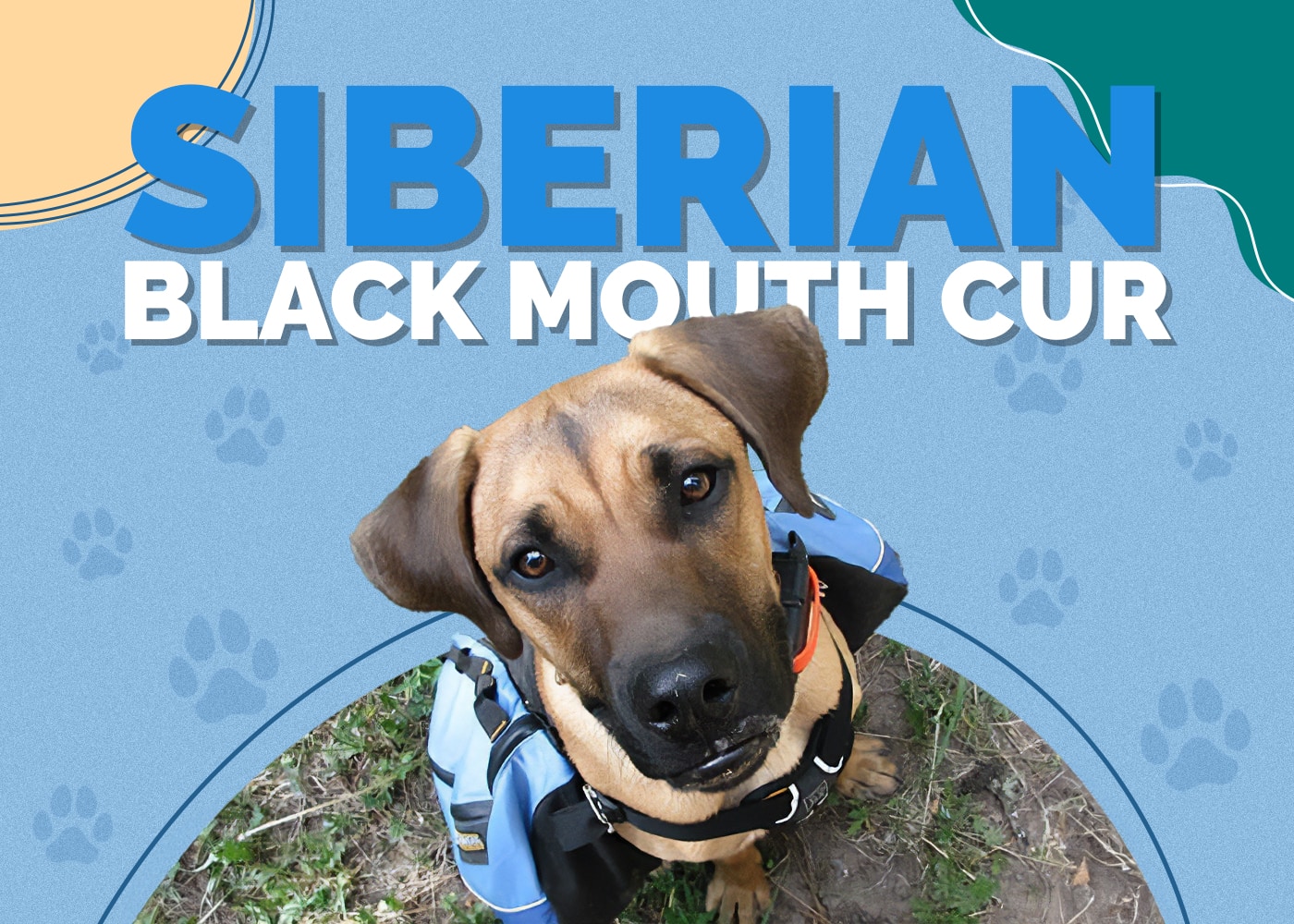
Height:
18–22 inches
Weight:
55–75 pounds
Lifespan:
12–18 years
Colors:
Black, brown, gray, cream, multicolored
Suitable for:
Active families, homes with yards
Temperament:
Smart, loyal, excellent watchdog, excitable, can get lazy
The Siberian Black Mouth Cur is a handsome hybrid dog bred from Siberian Husky and a Black Mouth Cur parents. Born to work as a herder and hunter1, these mixed breed Cur dogs aren’t for the faint of heart. They make good family pets but need training and a firm yet loving hand to ensure they can safely interact with other people and animals. Siberian Black Mouth Curs can weigh up to 75 pounds, and they’re typically active, so they need large fenced yards to spend time in.
This hybrid dog doesn’t readily accept strangers, which makes them great watchdogs at home. But they’ll warm up to friends and extended family members after spending time with them. Siberian Black Mouth Curs are intelligent, but they can also be ornery, which can make training tough for those without much training experience.
Although they’re quite active, they’re happy to spend time snuggling in the house with their family members, especially when it’s cold outside. But if allowed to lounge around too much, the Siberian Black Mouth Cur can get lazy and gain weight when they’re older. There is more to learn about this amazing mixed breed. So, keep reading to find out what it would be like to own a Siberian Black Mouth Cur.
Siberian Black Mouth Cur Puppies
The Siberian Husky and Black Mouth Cur are often bred with other breeds. For instance, Siberian Huskies and Rottweilers are bred together to create the Rottsky. Black Mouth Curs are bred with dogs such as Pit Bulls, American Foxhounds, and Golden Retrievers. The Siberian Black Mouth Cur is actually quite rare.
Therefore, you may have to search for breeders outside your area to find one of these pups for sale. No matter how much you spend to adopt a Siberian Black Mouth Cur puppy, you should have a veterinarian check them out before the adoption takes place to ensure they’re healthy and up to date on their vaccinations. You should also request background information for each puppy’s parents so that you know what to expect regarding long-term health and temperament.
As puppies, Siberian Black Mouth Curs don’t stay little for long. They’ll be big enough for daily walks and outdoor adventures by the time they are about a year old. They’ll also likely be bigger than the average kindergartener! Here’s what else you should know about Siberian Black Mouth Cur puppies.
3 Little-Known Facts About the Siberian Black Mouth Cur
1. Their Looks Can Vary Dramatically.
The Siberian Black Mouth Cur can take after either parent physically. Some have brown eyes like their Cur parent, while others have blue eyes like their Husky parent. Some have short, thin coats, and others have longer double coats. All aspects of this hybrid’s physical traits can vary, depending on which parent traits they retain.
2. They Enjoy Having a Job.
Thanks to their Cur parent, they are born to herd and hunt small and large prey. So, they have a natural drive to work, and they can get bored quickly if they don’t feel like they are being productive. If you don’t have a farm for your Siberian Black Mouth Cur to work on, consider taking them on hunting trips or giving them jobs like hauling firewood in your yard.
3. They Aren’t That Independent.
Although the Siberian Black Mouth Cur is confident and needs time to warm up to strangers, they love nothing more than spending time with their family members. They prefer to be by their owner’s side over spending time alone or with other dogs. They’re always looking for guidance regarding their behavior and interactions throughout the day.
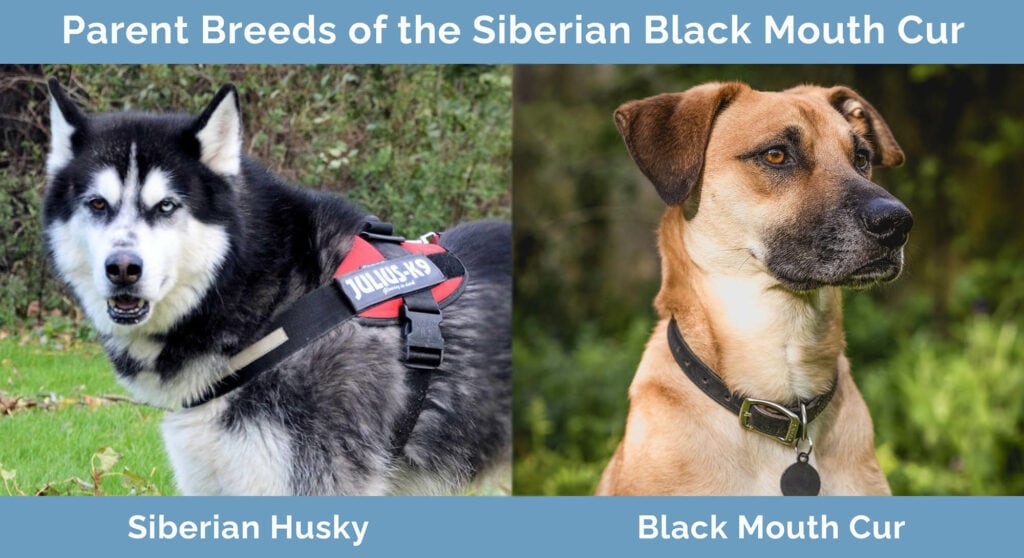
Temperament & Intelligence of the Siberian Black Mouth Cur 🧠
The Siberian Black Mouth Cur is a gentle giant. They’re active and hearty but also cuddly and affectionate with their family members. They like to spend their time working, so they should get daily walks and have opportunities to explore the outdoors in a safe and supervised setting. They should be provided with puzzles and chew toys while indoors so they don’t end up chewing your belongings.
They enjoy being around children, especially those in their immediate family. You can always count on your Siberian Black Mouth Cur to let you know when strangers enter your property. Their large stature is sure to scare off those who don’t have good intentions.
Are These Dogs Good for Families? 🏡
Even though the dogs were originally bred to hunt, they make good family pets because they love the action of busy family environments. A Siberian Black Mouth Cur can spend hours playing in the yard with kids. They’ll happily follow the adults around when they’re busy doing chores. They need plenty of outdoor time but are also laidback enough to spend their nights and downtime inside the house.
Does This Breed Get Along With Other Pets? 🐶 😽
The Siberian Black Mouth Cur can get along with other dogs if they are properly socialized when they are still puppies. This mixed breed should meet new dogs regularly, whether at the pet park or a friend’s home.
However, they might not get along with smaller pets like cats and gerbils due to their innate hunting drive. Smaller animals around Siberian Black Mouth Curs should always be supervised, even if the dogs seem non-aggressive.
Things to Know When Owning a Siberian Black Mouth Cur
Before deciding whether to adopt one, you still need to learn about the diet requirements, exercise needs, and training capabilities of the Siberian Black Mouth Cur. Here is important information that shouldn’t be overlooked.
Food & Diet Requirements 🦴
Siberian Black Mouth Curs are large dogs with high energy levels and big appetites. They can eat upward of 3 cups of food every day or more during long hikes and big outdoor adventures. They need high-quality food that’s made specifically for large breeds. The food should be high in protein and low in carbs.
It should also be free of artificial ingredients and fillers like soy and corn to minimize the chance of developing health problems over time. Your veterinarian can help you determine which brand is suitable for your dog.
Exercise 🐕
Due to their high activity level and natural prey drive, Siberian Black Mouth Curs aren’t typically satisfied with less than an hour of exercise each day. Exercise can be in the form of walking, playing fetch, practicing agility skills, and working on puzzle toys. Siberian Black Mouth Curs can keep up on long hikes and weekend camping trips; you’ll probably get tired before your dog does!
Training 🦮
Every Siberian Black Mouth Cur needs obedience training. Training should start as soon as they’re brought home as puppies so they learn how to behave and interact with others in a positive and friendly manner. If your dog doesn’t learn how to come, sit, and stay when they are puppies, they can become unruly and hard to manage once they’re fully grown.
Siberian Black Mouth Curs are somewhat stubborn, and training them will take patience and consistency. Siberian Black Mouth Curs also do well in agility and guard dog training. They can even become service dogs and work for the blind, the elderly, the fire department, and the police.
Grooming ✂️
The grooming requirements of your Siberian Black Mouth Cur will depend on the coat that they inherit from their parent breeds. If your pup takes after their Black Mouth Cur parent, they will have a short, soft coat that doesn’t need much more than a weekly brushing and an occasional bath.
However, if they take after their Siberian Husky parent, they will have a thick double coat that needs to be brushed several times a week to keep tangles and mats in check. Bathing might need to commence once a month or more to keep dirt from building up.
Siberian Huskies are sensitive to touch and don’t typically enjoy the grooming efforts of humans, which might be a trait that rubs off on your Siberian Black Mouth Cur pup. Therefore, it’s a good idea to start grooming your dog even before they need it so they get used to your touch by the time they are fully grown. This will make grooming over time more enjoyable for everyone involved.
Health Conditions ❤️
There are a few health conditions that Siberian Black Mouth Curs are susceptible to. If you’re aware of them now, you’ll know how to protect your dog as they age.
- Hypothyroidism
- Von Willebrand’s disease
- Corneal dystrophia
- Progressive retinal atrophy
- Hip dysplasia
Male vs Female
While male and female Siberian Black Mouth Curs can make great family pets, many owners find that males are more dependent than females. The boys like to stick together in a tight pack, whereas the gals are more independent. Female Siberian Black Mouth Curs also seem to mature quicker, and they’re said to be easier to house train. Both male and female Siberian Black Mouth Curs are active, fun-loving, and active.
Final Thoughts
If you’re looking for a strong, protective dog that’s also lovable and loyal, you can’t go wrong with the Siberian Black Mouth Cur. They will make you smile, challenge your stamina and intellect, and reward you with loyalty at the end of the day. You’ll also have a built-in security system once your new Siberian Black Mouth Cur puppy enters your home and gets accustomed to their surroundings!
If you’re not highly active and don’t have a fenced yard for a dog to play in, they may not be the right breed for your household. What do you think it takes to raise one of these awesome hybrid dogs? We’d love to hear your thoughts in the comments section.
See Also:



